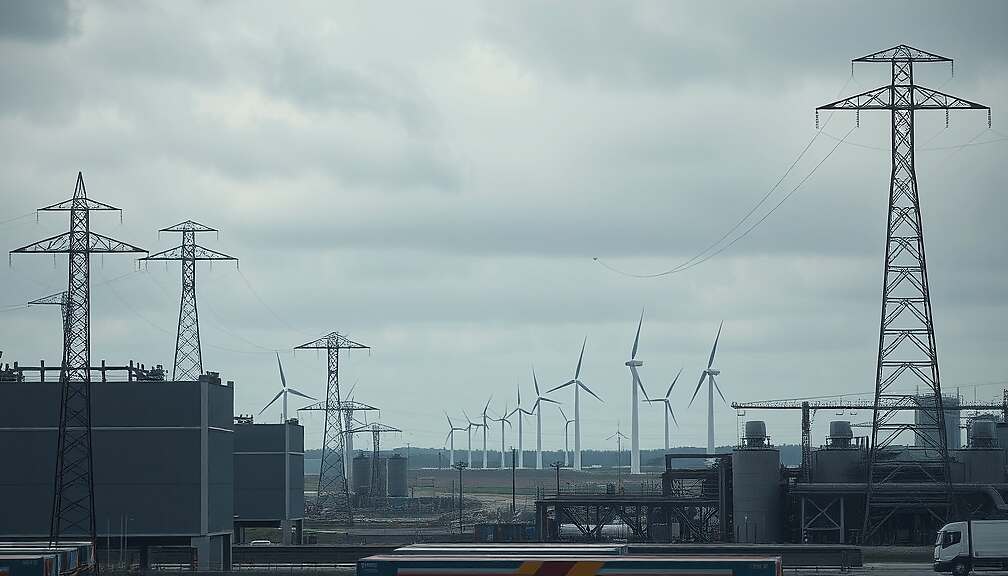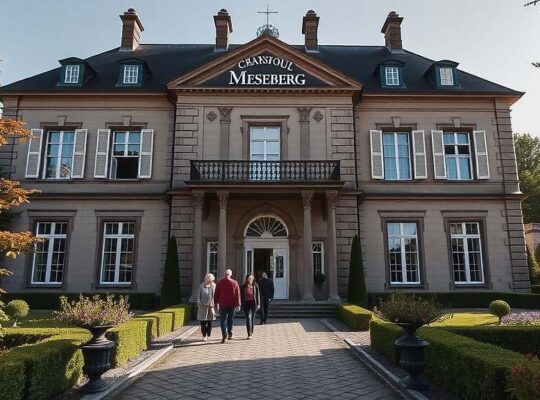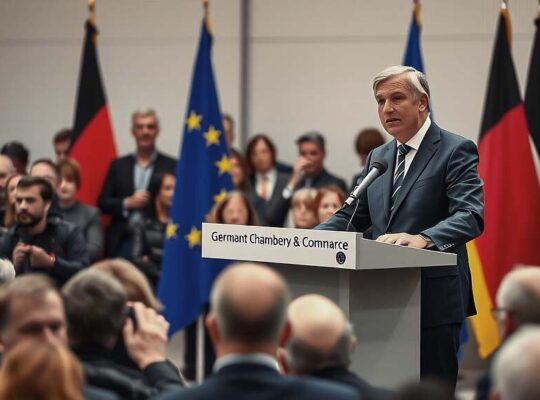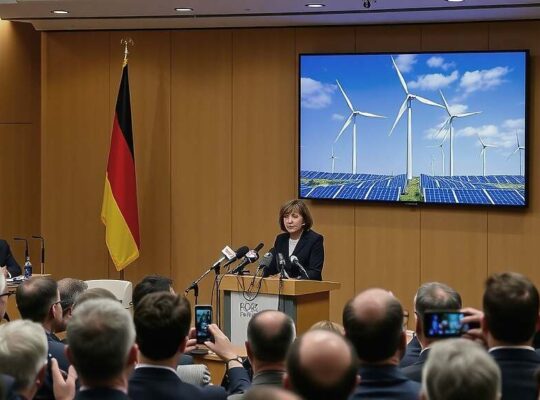Germany’s leading business association, the Association of German Chambers of Industry and Commerce (DIHK), has warned of a substantial increase in costs associated with the country’s energy transition. DIHK President Peter Adrian emphasized the need to maximize all potential savings, citing findings from an upcoming study set to be released next week.
The study, conducted by Frontier Economics on behalf of the DIHK, projects that the cumulative costs for Germany’s electricity and gas networks could reach a trillion euros in the coming decades. A significant portion of this, approximately 600 billion euros, could accrue within the next ten years. This estimate is notably higher than other forecasts, owing to its comprehensive inclusion of both investment costs for network construction and substantial operational and maintenance expenses.
Adrian highlighted a current trend of large industrial companies relocating production outside of Germany, attributing it to rising costs. He cautioned that continued increases in network costs, driving up energy prices, could reach a critical point, jeopardizing economic prosperity, employment and public support for the energy transition.
The DIHK suggests a potential cost-reduction strategy: increased reliance on imported hydrogen for climate protection within the energy sector. Utilizing existing natural gas pipelines for hydrogen transport could leverage existing infrastructure and mitigate the need for extensive new network construction. Adrian described this approach as a “key lever” to control escalating costs and ensure the sustainability of Germany’s energy transition.












